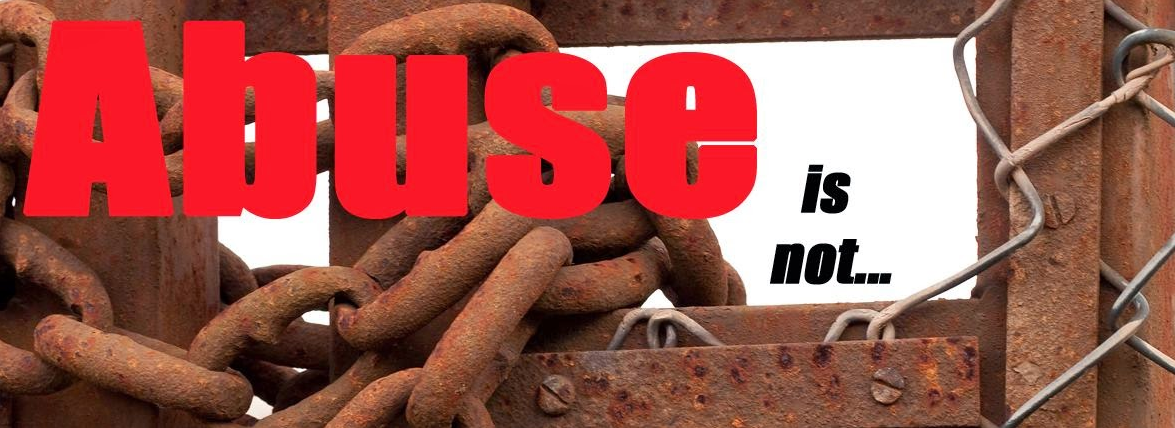| THE TEXT OF THE NATIONAL MARRIAGE BROKERS REGULATION ACT OF 2005
From Thomas.gov http://thomas.loc.gov/
S 1618 IS
109th CONGRESS 1st Session S. 1618
To regulate international marriage broker activity in the United States, to provide for certain protections for individuals who utilize the services of international marriage brokers, and for other purposes.
IN THE SENATE OF THE UNITED STATES
Ms. CANTWELL (for herself and Mr. BROWNBACK) introduced the following bill; which was read twice and referred to the Committee on the Judiciary
A BILL
To regulate international marriage broker activity in the United States, to provide for certain protections for individuals who utilize the services of international marriage brokers, and for other purposes.
Be it enacted by the Senate and House of Representatives of the United States of America in Congress assembled,
SECTION 1. SHORT TITLE.
This Act may be cited as the `International Marriage Broker Regulation Act of 2005′.
SEC. 2. FINDINGS.
Congress finds the following:
(1) There is a substantial international marriage broker business worldwide. A 1999 report by the Immigration and Naturalization Service estimated that there were at least 200 such companies operating in the United States, and that as many as 4,000 to 6,000 individuals in the United States, almost all male, found foreign spouses through for-profit international marriage brokers each year. The international marriage broker business has grown significantly in recent years, greatly facilitated by the Internet. Studies suggest that in 2005 approximately 500 such companies operate in the United States. In addition, the total number of foreign individuals entering the United States to marry United States residents each year more than doubled between 1998 and 2002. It is estimated, then, that in 2005 at least 8,000 to 12,000 individuals in the United States find foreign spouses through for-profit international marriage brokers each year.
(2) That report noted that the `pervasiveness of domestic violence in our society has already been documented, and with the burgeoning number of unregulated international matchmaking organizations and clients using their services, the potential for abuse in mail-order marriages is considerable.’ The report noted further that men in the United States who use the services of an international marriage broker tend to seek relationships with women whom they feel they can control.
(3) The dangers posed to foreign women who meet their United States husbands through international marriage brokers are underscored by the growing number of cases across the United States of foreign women who have been abused or killed by those husbands. Two highly publicized examples are the murders in Washington State of Susanna Remunerata Blackwell of the Philippines and Anastasia Solovieva King of Kyrgyzstan.
(4) A 2003 survey of programs providing legal services to battered immigrant women across the country found that more than 50 percent of these programs had served female immigrant clients battered by men in the United States they met through international marriage brokers.
(5) 30.4 percent of all women in the United States are physically abused by their husbands or male cohabitants at some point in their lives. 49.3 percent of immigrants reported physical abuse by an intimate partner during their lifetimes, with 42.1 percent reporting severe physical or sexual abuse. Among immigrants who were married or formerly married the lifetime abuse rate raises as high as 59.5 percent.
(6) Of abusive United States citizen or legal resident spouses, 72.3 percent never file the immigration papers necessary for their foreign spouses to obtain legal immigrant status, and the 27.7 percent who eventually do file wait an average of 4 years to do so. In 1994, Congress included immigration protections in the Violence Against Women Act (`VAWA’) (Public Law 103-322; 108 Stat. 1902), to remove the ability of abusive United States citizens and legal permanent residents to fully control their foreign spouses’ ability to gain legal immigration status. By removing the threat of automatic deportation, VAWA aims to enable battered immigrants to take actions to protect themselves and their children, such as calling the police, obtaining a civil protection order, or filing criminal charges.
(7) Aliens seeking to enter the United States to marry citizens or legal residents of the United States currently lack the ability to access and fully verify personal history information about their prospective spouses in the United States.
(8) Many individuals entering the United States on K nonimmigrant visas to marry citizens of the United States are unaware of United States laws regarding–
(A) domestic violence, including protections for immigrant victims of domestic violence, sexual assault, and stalking;
(B) prohibitions on involuntary servitude;
(C) protections from automatic deportation; and
(D) the role of police and the courts in providing assistance to victims of domestic violence and other crimes.
SEC. 3. DEFINITIONS.
In this Act:
(1) CRIME OF VIOLENCE- The term `crime of violence’ has the meaning given such term in section 16 of title 18, United States Code.
(2) DOMESTIC VIOLENCE- The term `domestic violence’ means any crime of violence, or other act forming the basis for a past or outstanding protective order, restraining order, no-contact order, conviction, arrest, or police report, committed against a person by–
(A) a current or former spouse of the person;
(B) an individual with whom the person shares a child in common;
(C) an individual with whom the person is cohabiting or has cohabited;
(D) an individual similarly situated to a spouse of the person under the domestic or family violence laws of the jurisdiction in which the offense occurs; or
(E) any other individual if the person is protected from that individual’s acts pursuant to a court order issued under the domestic or family violence laws of the United States or any State, Indian tribal government, or unit of local government.
(3) FOREIGN NATIONAL CLIENT- The term `foreign national client’ means an individual who is not a United States citizen, a national of the United States, or an alien lawfully admitted to the United States for permanent residence and who utilizes the services of an international marriage broker, and includes an alien residing in the United States who is in the United States as a result of utilizing the services of an international marriage broker.
(4) INTERNATIONAL MARRIAGE BROKER-
(A) IN GENERAL- The term `international marriage broker’ means a corporation, partnership, business, individual, or other legal entity, whether or not organized under any law of the United States, that charges fees for providing dating, matrimonial, matchmaking services, or social referrals between United States clients and foreign national clients by providing personal contact information or otherwise facilitating communication between individuals from these respective groups.
(B) EXCEPTIONS- Such term does not include–
(i) a traditional matchmaking organization of a cultural or religious nature that operates on a nonprofit basis and in compliance with the laws of the countries in which it operates, including the laws of the United States; or
(ii) an entity that provides dating services between United States citizens or residents and other individuals who may be aliens, but does not do so as its principal business, and charges comparable rates to all individuals it serves regardless of the gender, country of citizenship, or residence of the individual.
(5) K NONIMMIGRANT VISA- The term `K nonimmigrant visa’ means a nonimmigrant visa issued pursuant to clause (i) or (ii) of section 101(a)(15)(K) of the Immigration and Nationality Act (8 U.S.C. 1101(a)(15)(K)).
(6) PERSONAL CONTACT INFORMATION-
(A) IN GENERAL- The term `personal contact information’ means information or a forum that would permit individuals to contact each other and includes–
(i) the name, telephone number, postal address, electronic mail address, and voice message mailbox of an individual; and
(ii) the provision of an opportunity for an in-person meeting.
(B) EXCEPTION- Such term does not include a photograph or general information about the background or interests of a person.
(7) STATE- The term `State’ includes the District of Columbia, Puerto Rico, the Virgin Islands, Guam, and American Samoa.
(8) UNITED STATES CLIENT- The term `United States client’ means a United States citizen or other individual who resides in the United States and who makes a payment or incurs a debt in order to utilize the services of an international marriage broker.
SEC. 4. REGULATION OF INTERNATIONAL MARRIAGE BROKERS.
(a) Prohibition on Marketing Children- An international marriage broker shall not provide any United States client or other person with the personal contact information, photograph, or general information about the background or interests of any individual under the age of 18.
(b) Limitations on Sharing Information Regarding Foreign National Clients-
(1) IN GENERAL- An international marriage broker shall not provide any United States client or other person with the personal contact information of any foreign national client or other individual 18 years of age or older unless and until the international marriage broker has–
(A) collected certain background information from the United States client or other person to whom the personal contact information would be provided, as specified in subsection (c);
(B) provided a copy of that background information to the foreign national client or other individual in the primary language of that client or individual;
(C) provided to the foreign national client or other individual in such primary language the information about legal rights and resources available to immigrant victims of domestic violence and other crimes in the United States developed under section 5;
(D) received from the foreign national client or other individual in such primary language a written consent that is signed (including using an electronic signature) to release such personal contact information to the specific United States client or other person to whom the personal contact information would be provided; and
(E) informed the United States client or other person from whom background information has been collected that, after filing a petition for a K nonimmigrant visa, the United States client or other person will be subject to a criminal background check.
(2) CONFIDENTIALITY AFTER ORDER OF PROTECTION OR CRIME-
(A) NONDISCLOSURE OF INFORMATION REGARDING INDIVIDUALS WITH PROTECTION ORDERS AND VICTIMS OF CRIMES- In fulfilling its obligations under this subsection, an international marriage broker shall not disclose the name or location of an individual who obtained a restraining or protection order as described in subsection (c)(2)(A), or of any other victim of a crime as described in subparagraphs (B) through (D) of subsection (c)(2).
(B) DISCLOSURE OF INFORMATION REGARDING UNITED STATES CLIENTS- An international marriage broker shall disclose the relationship of the United States client or other person to an individual or victim described in paragraph (A).
(c) Obligations of International Marriage Broker With Respect to Mandatory Collection of Information-
(1) IN GENERAL- Each international marriage broker shall collect the background information listed in paragraph (2) from each United States client or other person to whom the personal contact information of a foreign national client or any other individual would be provided. The background information must be in writing and signed (including using an electronic signature) by the United States client or other person to whom the personal contact information of a foreign national client or any other individual would be provided.
(2) REQUIRED BACKGROUND INFORMATION- An international marriage broker shall collect from a United States client or other person under paragraph (1) background information about each of the following:
(A) Any court order restricting the client’s or person’s physical contact or communication with or behavior towards another person, including any temporary or permanent civil restraining order or protection order.
(B) Any arrest or conviction of the client or person for homicide, murder, manslaughter, assault, battery, domestic violence, rape, sexual assault, abusive sexual contact, sexual exploitation, incest, child abuse or neglect, torture, trafficking, peonage, holding hostage, involuntary servitude, slave trade, kidnapping, abduction, unlawful criminal restraint, false imprisonment, stalking, or any similar activity in violation of Federal, State or local criminal law.
(C) Any arrest or conviction of the client or person for–
(i) solely or principally engaging in, or facilitating, prostitution;
(ii) any direct or indirect attempts to procure prostitutes or persons for the purpose of prostitution; or
(iii) any receipt, in whole or in part, of the proceeds of prostitution.
(D) Any arrest or conviction of the client or person for offenses related to controlled substances or alcohol.
(E) Marital history of the client or person, including–
(i) whether the client or individual is currently married;
(ii) whether the client or person has previously been married and how many times;
(iii) how previous marriages of the client or person were terminated and the date of termination; and
(iv) whether the client or person has previously sponsored the immigration of an alien to whom the client or person was engaged or married.
(F) The ages of any children of the client or person under the age of 18.
(G) All States in which the client or person has resided since the age of 18.
(d) Penalties-
(1) FEDERAL CIVIL PENALTY-
(A) VIOLATION- An international marriage broker that violates subsection (a), (b), or (c) is subject to a civil penalty of not less than $20,000 for each such violation.
(B) PROCEDURES FOR IMPOSITION OF PENALTY- The Secretary of Homeland Security may impose a penalty under paragraph (A) only after notice and an opportunity for an agency hearing on the record in accordance with subchapter II of chapter 5 of title 5, United States Code.
(2) FEDERAL CRIMINAL PENALTY- An international marriage broker that violates subsection (a), (b), or (c) within the special maritime and territorial jurisdiction of the United States shall be fined in accordance with subchapter B of chapter 229 of title 18, United States Code, or imprisoned for not less than 1 year and not more than 5 years, or both.
(3) STATE ENFORCEMENT- In any case in which the Attorney General of a State has reason to believe that an interest of the residents of that State has been, or is threatened to be, adversely affected by a violation of subsection (a), (b), or (c) by an international marriage broker, the State, as parens patriae, may bring a civil action on behalf of the residents of the State in a district court of the United States with appropriate jurisdiction to–
(A) enjoin that practice;
(B) enforce compliance with this section; or
(C) obtain damages.
(4) ADDITIONAL REMEDIES- The penalties and remedies under this subsection are in addition to any other penalties or remedies available under law.
(e) Nonpreemption- Nothing in this section shall preempt–
(1) any State law that provides additional protections for aliens who are utilizing the services of an international marriage broker or other international matchmaking organization; or
(2) any other or further right or remedy available under law to any party utilizing the services of an international marriage broker or other international matchmaking organization.
(f) Repeal of Mail-Order Bride Provision- Section 652 of the Illegal Immigration Reform and Immigrant Responsibility Act of 1996 (8 U.S.C. 1375) is hereby repealed.
SEC. 5. INFORMATION ABOUT LEGAL RIGHTS AND RESOURCES FOR IMMIGRANT VICTIMS OF DOMESTIC VIOLENCE.
(a) Development of Information Pamphlet-
(1) IN GENERAL- The Secretary of Homeland Security, in consultation with the Secretary of State, shall develop an information pamphlet to ensure the consistency and accuracy of information disseminated to–
(A) foreign national clients or other individuals by international marriage brokers pursuant to section 4(b)(1)(C); and
(B) beneficiaries of petitions filed by United States citizens for K nonimmigrant visas.
(2) CONSULTATION WITH EXPERT ORGANIZATIONS- The Secretary of Homeland Security, in consultation with the Secretary of State, shall develop such information pamphlet by working in consultation with non-profit, non-governmental immigrant victim advocacy organizations.
(b) Contents of Information Pamphlet- The information pamphlet required under subsection (a) shall include information on the following:
(1) The K nonimmigrant visa application process and the marriage-based immigration process, including conditional residence and adjustment of status.
(2) The requirement that international marriage brokers provide foreign national clients with background information collected from United States clients regarding their marital history and domestic violence or other violent criminal history, but that such information may not be complete or accurate.
(3) The illegality of domestic violence, sexual assault, and child abuse in the United States.
(4) Information on the dynamics of domestic violence.
(5) Domestic violence and sexual assault services in the United States, including the National Domestic Violence Hotline, a project of the Texas Council on Family Violence, a nonprofit organization dedicated to fighting domestic violence, and the National Sexual Assault Hotline, operated by the Rape, Abuse and Incest National Network, and independent anti-sexual assault organization.
(6) A description of immigration relief available to an immigrant victim of domestic violence, sexual assault, trafficking, and other crimes under the Violence Against Women Act, including the amendments made by that Act, section 101(a)(15)(U) of the Immigration and Nationality Act (8 U.S.C. 1101(a)(15)(U)), and section 101(a)(15)(T) of the Immigration and Nationality Act (8 U.S.C. 1101(a)(15)(T)).
(7) The legal rights of immigrant victims of abuse and other crimes in immigration, criminal justice, family law, and other matters.
(8) The obligations of parents to provide child support for children.
(9) The illegality of and penalties for knowingly entering into marriage for the purpose of evading the immigration laws of the United States.
(c) Translation-
(1) LANGUAGES- In order to best serve the language groups most recruited by international marriage brokers and having the greatest concentration of K nonimmigrant visa applicants, the Secretary of Homeland Security, in consultation with the Secretary of State, shall translate the information pamphlet developed under this section, subject to paragraph (2), into the following languages:
(A) Arabic.
(B) Chinese.
(C) French.
(D) Hindi.
(E) Japanese.
(F) Korean.
(G) Polish.
(H) Portuguese.
(I) Russian.
(J) Spanish.
(K) Tagalog.
(L) Thai.
(M) Ukrainian.
(N) Vietnamese.
(2) MODIFICATION OF LANGUAGE- The Secretary of Homeland Security may modify the translation requirements of paragraph (1) if the report submitted under section 7(b) includes recommendations for such modification.
(d) Availability and Distribution- The information pamphlet under this subsection shall be made available and distributed as follows:
(1) INTERNATIONAL MARRIAGE BROKERS AND VICTIM ADVOCACY ORGANIZATIONS- The information pamphlet shall be made available to each international marriage broker and to each governmental or non-governmental victim advocacy organization.
(2) K NONIMMIGRANT VISA APPLICANTS-
(A) MAILING WITH IMMIGRATION FORMS- The information pamphlet shall be mailed by the National Visa Center, of the Secretary of State, to each applicant for a K nonimmigrant visa at the same time that Form DS-3032 is mailed to such applicant. The pamphlet so mailed shall be in the primary language of the applicant, or in English if no translation into the applicant’s primary language is available.
(B) POSTING ON NVC WEB SITE- The Secretary of State shall post the content of the pamphlet on the web site of the National Visa Center, as well as on the web sites of all consular posts processing K nonimmigrant visa applications.
(C) CONSULAR INTERVIEWS- The Secretary of State shall require that the pamphlet be distributed directly to such applicants at all consular interviews for K nonimmigrant visas. If no written translation into the applicant’s primary language is available, the consular officer conducting the visa interview shall review the pamphlet with the applicant orally in the applicant’s primary language, in addition to distributing the pamphlet to the applicant in English.
SEC. 6. CHANGES IN PROCESSING K NONIMMIGRANT VISAS; CONSULAR CONFIDENTIALITY.
(a) K Nonimmigrant Visa Processing- Section 214(d) of the Immigration and Nationality Act (8 U.S.C. 1184(d)) is amended–
(1) by striking `Attorney General’ and inserting `Secretary of Homeland Security’ each place it appears;
(2) by inserting `(1)’ before `A visa’; and
(3) by adding at the end the following:
`(2) A United States citizen may not file a petition under paragraph (1) if such a petition filed by that petitioner for another alien fiancee or fiance is pending or has been approved and is still valid.
`(3) The Secretary of Homeland Security shall provide to the Secretary of State the criminal background information on a petitioner for a visa under clause (i) or (ii) of section 101(a)(15)(K) to which it has access under existing authority in the course of adjudicating the petition.
`(4) Each petitioner for a visa under clause (i) or (ii) of section 101(a)(15)(K) shall provide, as part of the petition, in writing and signed under penalty of perjury, information described in section 4(c)(2) of the International Marriage Broker Regulation Act of 2005.
`(5) The Secretary of State shall ensure that an applicant for a visa under clause (i) or (ii) of section 101(a)(15)(K)–
`(A) shall be provided, by mail or electronically–
`(i) a copy of the petition for such visa submitted by the United States citizen petitioner; and
`(ii) any information that is contained in the background check described in paragraph (3) relating to any court orders, arrests, or convictions described in subparagraphs (A) through (D) of section 4(c)(2) of the International Marriage Broker Regulation Act of 2005;
`(B) shall be informed that petitioner information described in subparagraph (A) is based on available records and may not be complete; and
`(C) shall be asked in the primary language of the visa applicant whether an international marriage broker has facilitated the relationship between the visa applicant and the United States petitioner and whether that international marriage broker complied with the requirements of section 4 of such Act.
`(6) The Secretary shall provide for the disclosure of information described in paragraph (5) to the visa applicant at the consular interview in the primary language of the visa applicant.
`(7) The fact that an alien described in clause (i) or (ii) of section 101(a)(15)(K) is aware of any information disclosed under paragraph (5) shall not be used against the alien in any determination of eligibility for relief under this Act or the Violence Against Women Act (Public Law 103-322; 108 Stat. 1902), and the amendments made by that Act.
(8) In fulfilling the requirements of paragraph (5)(A)(ii), a consular officer shall not disclose the name or location of any person who obtained a restraining or protective order against the petitioner, but shall disclose the relationship of the person to the petitioner.’.
(b) Sharing of Certain Information- Section 222(f) of the Immigration and Nationality Act (8 U.S.C. 1202(f)) shall not be construed to prevent the sharing of information under section 214(d) of such Act (8 U.S.C. 1184(d)).
(c) Effective Date- The amendment made by subsection (a) shall apply to petitions filed after the date of enactment of this Act.
SEC. 7. STUDY AND REPORT.
(a) Study- The Secretary of Homeland Security, through the Director of the Bureau of Citizenship and Immigration Services, shall conduct a study of the international marriage broker industry in the United States that–
(1) estimates, for the years 1995 through 2005,the number of international marriage brokers doing business in the United States, the number of marriages resulting from the services provided by such brokers, and the extent of compliance with the applicable requirements of this Act;
(2) assess the information gathered under this Act from clients by international marriage brokers and from petitioners by the Bureau of Citizenship and Immigration Services;
(3) examine, based on the information gathered, the extent to which persons with a history of violence are using the services of international marriage brokers and the extent to which such persons are providing accurate information to international marriage brokers in accordance with section 4;
(4) assess the accuracy of the criminal background check at identifying past instances of domestic violence; and
(5) assess the extent to which the languages of translation required under section 5(c)(1) continue to accurately reflect the highest markets for recruitment by international marriage brokers and the greatest concentrations of K nonimmigrant visa applicants.
(b) Report- Not later than 3 years after the date of enactment of this Act, the Secretary of Homeland Security shall submit a report to the Committee on the Judiciary of the Senate and the Committee on the Judiciary of the House of Representatives setting forth the results of the study conducted under subsection (a).
SEC. 8. EFFECTIVE DATE.
(a) In General- Except as provided in subsection (b), section 5, and the amendments made by section 6, this Act shall take effect on the date which is 60 days after the date of enactment of this Act.
(b) Additional Time Allowed for Information Pamphlet- Section 5(b) shall take effect on the date which is 120 days after the date of enactment of this Act. |
















 THE TRUTH ACCORDING TO TAHIRIH
THE TRUTH ACCORDING TO TAHIRIH